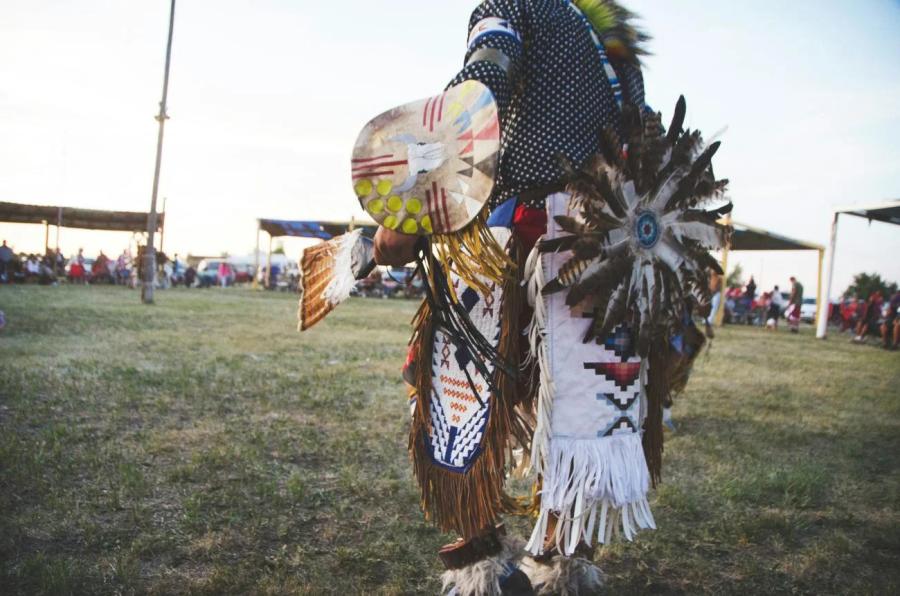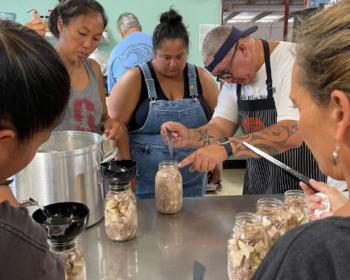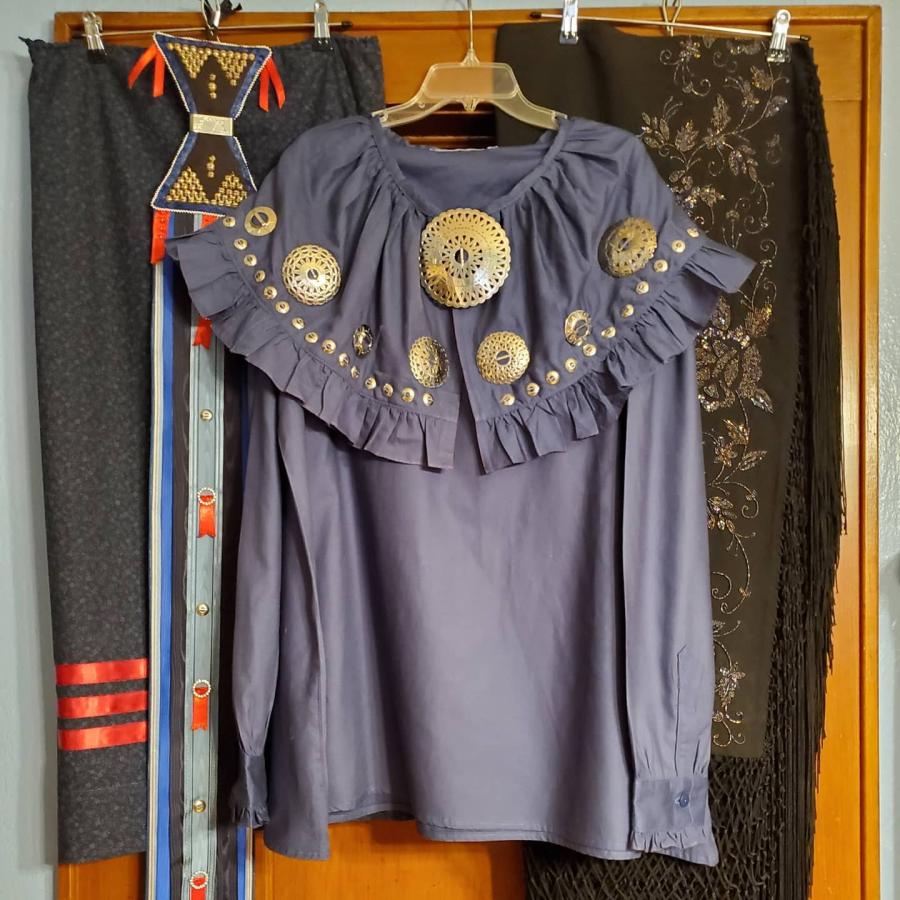Brooke Ammann’s mother still carries the scar from when she was punished for speaking Ojibwe on the playground at school with her cousin and sister. Hoping to help their daughter avoid such a fate, Brooke’s parents tried to make her speak English, even though they themselves could not speak it fluently. But as she got older, Brooke started becoming interested in learning Ojibwe, though it took her mother a while to be comfortable with the idea of speaking Ojibwe again.
Ammann’s mother, and many other Ojibwe elders, were convinced to start speaking Ojibwe again when the grandchildren started speaking to them in the language. “Older people cannot resist a child speaking to them in Ojibwe,” says Ammann. “Whenever a child speaks to someone in Ojibwe, whatever was hurting them starts to heal. That’s part of the importance of connecting older people with children.”
As the new mother of two Ojibwe boys, Ammann wanted a school where their history, culture, and language were provided as a part of a solid education. And now her wish is coming true—in spades. In September, Ammann was named director of the Waadookodaading Ojibwe Language Immersion Charter School in Hayward, Wisconsin. It’s a job she is more than qualified for: she studied education policy and management at the Harvard Graduate School of Education and previously worked as the Education and Youth Director for the St. Croix Chippewa tribe.
Waadookodaading opened in 2000, and currently provides full-time schooling in Ojibwe for 35 students from preschool to fifth grade. Keller Paap and Lisa LaRonge, second-language learners and parents themselves, founded the school in 1999, and they are still teachers at the school. Since no educational materials companies currently sell Ojibwe books, they create their own culturally relevant materials and curricula in Ojibwe.
Ammann said one of the biggest challenges she faces is convincing parents and elders who were discriminated against and educationally abused when they were in school that learning Ojibwe will not hinder their child’s English development. In fact, the teachers concentrate on self-esteem and respect, making the students more confident, respectful, and creative bilingual citizens. Learning the language is only one aspect of building confidence as a people. As Ammann said, “Our goal is to create good people who also speak Ojibwe.”
The community has few native speakers, but visitors from Red Lake, Wisconsin, and Piedmont, Minnesota, come to speak with the students and host camps centered around traditional seasonal activities. In January, two native speakers from other Ojibwe reservations ran a winter trapping camp about snaring rabbits and beavers. Trappers are not having great success this year, and the camp discusses the reasons for that, the beliefs around hunting, and what is happening in the environment. The camps provide both vocabulary and cultural lessons. A wild-rice-gathering camp taught the traditional stages of processing rice. There have also been a maple-sugar camp and a wigwam-construction camp, and a berry camp is in the works for this summer. The camps are fed into the core curriculum. The result is students who not only speak their own language, but live their own culture. In the process, Ammann is healing some of the damage done to her mother’s generation.
Elissa Bolt just received her master’s degree in linguistics from the School of Oriental and African Studies at the University of London.



